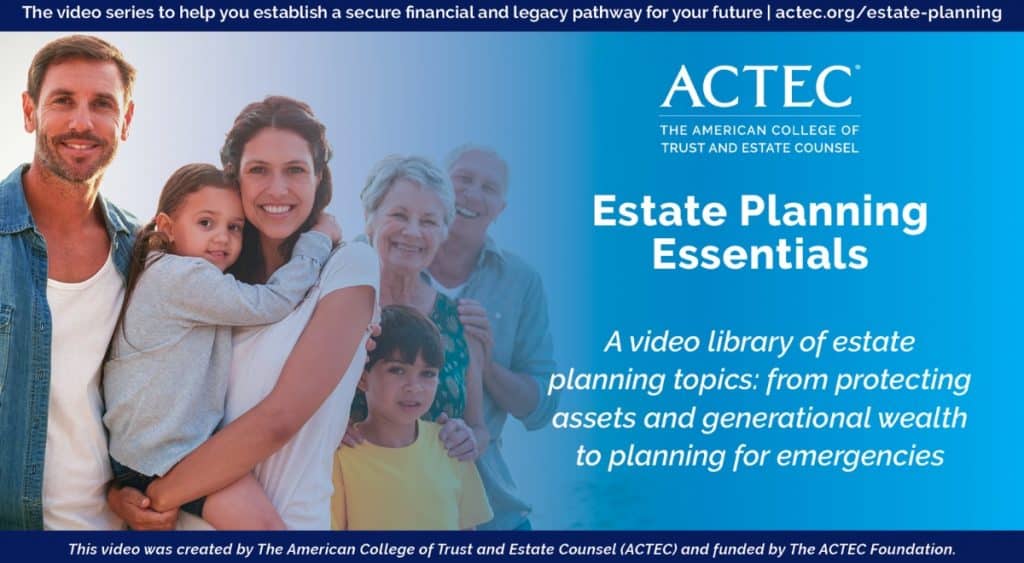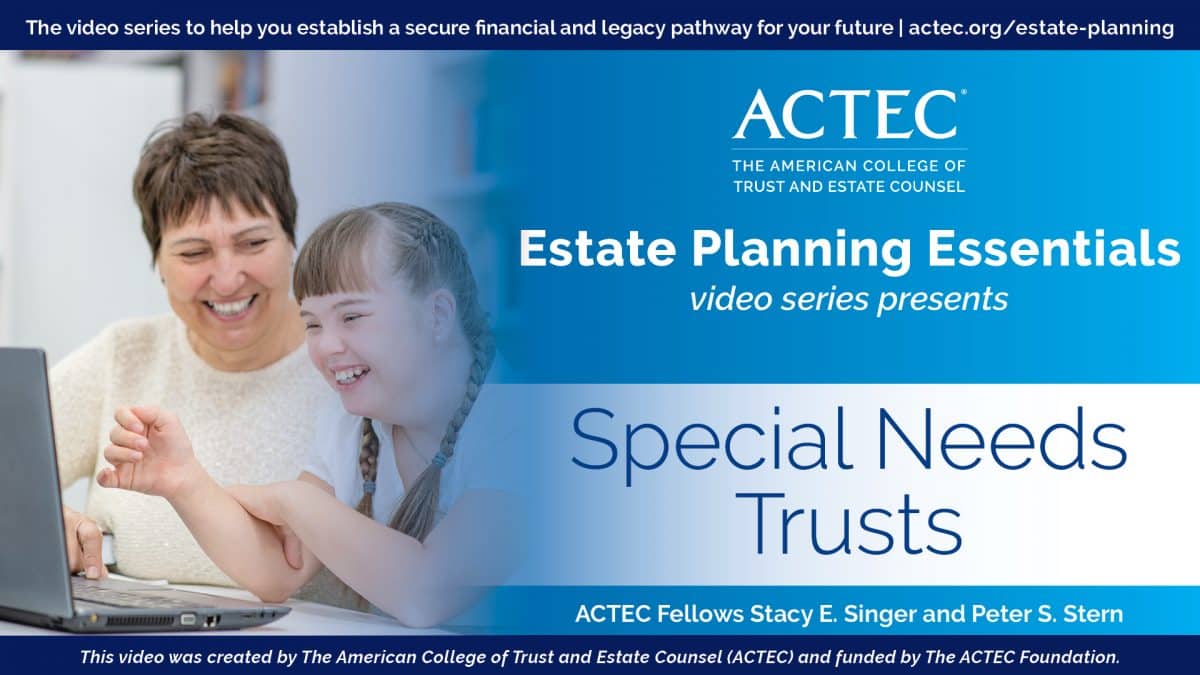Supported decision-making is a person-centered approach that provides individuals with disabilities or cognitive impairments the necessary assistance, tools, and information to make their own choices and decisions while respecting their autonomy and preferences. It aims to enhance their ability to participate in various aspects of life and maintain control over their own affairs without resorting to guardianship or total decision-making authority by others.
ACTEC Fellows Professor David M. English and Tara Anne Pleat explain how supported decision-making works, including an overview of a pilot program in New York.
Transcript
Good morning. My name is Tara Anne Pleat. I’m an ACTEC Fellow from Upstate New York and I’m here today talking about the concept of supported decision-making with Professor David English, an ACTEC Fellow from the state of Missouri.
David, can you get us started off this morning by giving an explanation of what supported decision-making is and where it’s originating from?
Professor David English: For many parents of children with developmental or intellectual disability, it is automatically assumed, often, that when the child becomes age eighteen, it will be necessary for the court to appoint someone as a guardian for the child. Usually, the parents and sometimes the schools insist on that. Supported decision-making, not always, but in many cases, is an excellent alternative to the appointment of a guardian, and it allows the child to continue to make decisions for themselves but with assistance. This won’t always work, but it will work in many cases. And all around the country today, there are a number of pilot programs in progress to help supported decision-making both work and to work better. And one of the more developed pilot projects is in the state of New York. So, Tara, can you tell us about the supported decision-making pilot project in New York?
Tara Anne Pleat: Yes. Thanks, David. In New York, we’re six years into our pilot project, which is focused on the younger intellectual and developmental disability population, really putting their eyes on individuals who are age 18 or a little bit older. And those individuals are now contemplating, or their supporters and advocates are contemplating whether or not they should be seeking out guardianship for these individuals and are contemplating what the alternatives are.
When I talk to parents who are facing this question, it’s important to make sure that they understand, despite what they may be being told from a school district or from a disability service organization or from a doctor’s office, frankly, that they have to seek out guardianship because their child happens to have a developmental disability diagnosis. It’s simply just not true. There are alternatives that those parents can consider, and to the point David just made, depending upon the abilities of the individual in question, supported decision-making may be an appropriate arrangement – where that individual learns they are empowered to make their own decisions and ask for help, or seek out help from a parent or another loved one or a confidant who they want to be part of that process for them. What I do caution parents about, however, at least in New York – I suspect this is probably the case around the country– but, often these individuals are receiving supports and services through a state agency that creates community supports to help individuals live independently in the community. What I can tell you is that that system is a very difficult system for the most able-bodied people in the world to navigate, and it’s important for parents to understand that supported decision-making is not a right to stand in the shoes of the individual and speak for them. It is to stand behind them and help them speak. And in some circumstances, that may just not be enough. So, it’s important for parents to understand as they’re evaluating what options they have that supported decision-making does not give a parent a seat at the table. It ensures that their child has a seat at the table and helps that child voice their decisions. But if the parent feels that the capacity level of the child is such that that’s not enough to adequately advocate in the service delivery system, then supported decision-making may not be the right step or it may be only one of several steps that the family considers. David, what are you finding or what are you seeing, both in the state of Missouri and then in the other states that you’ve got an awareness of? What is happening with these kinds of agreements?
Professor David English: In Missouri, we have a hundred-member consortium working on supported decision-making, primarily for the intellectual and developmental disability population. But many states have recently enacted statutes authorizing supported decision-making, but supported decision-making can be done whether or not your state has yet enacted a statute. But to do supported decision-making it is very helpful for you to get more information on the concept. Hopefully, we’ve given you a good start today. You will find more resources on the ACTEC website; and I can also strongly recommend that you take a look at the website supporteddecisionmaking.org, which was put together by the administration on community living, which is a division of the federal government.
Tara Anne Pleat: Thank you, David, for your insight and for the discussion on supported decision-making this morning.
Featured Video
Special Needs Trusts
Estate planning experts explain the different types of special needs trusts, considerations to avoid losing public benefits like Medicaid, and potential pitfalls.
ACTEC Estate Planning Essentials

ACTEC Fellows provide answers to frequently asked trust and estate planning questions in this video series.



